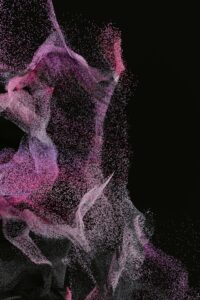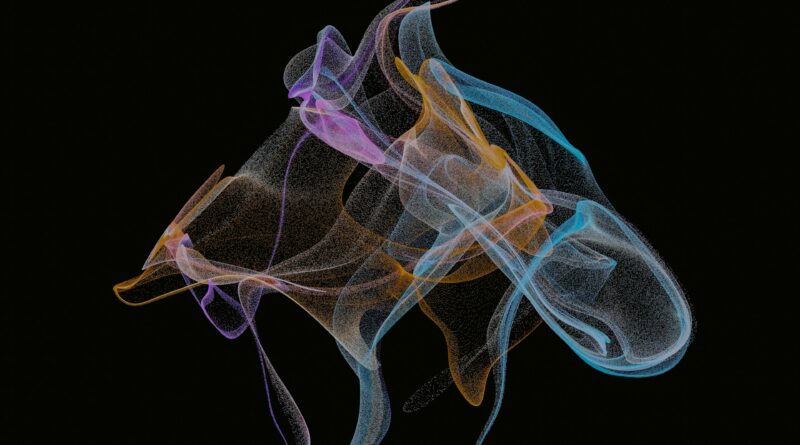The Inclusion of Disabled and Neurodiverse Ph.D. Students: Embracing Care and Kindness
The Inclusion of Disabled and Neurodiverse Ph.D. Students: Embracing Care and Kindness
Keren Dali and Deborah H. Charbonneau
The aftermath and lingering effects of the COVID-19 pandemic on higher education is something that we are still trying to fully grasp. In their 2023 conceptual piece dedicated to disabled faculty during and after the pandemic, Dali and Jaeger pointed to the fact that despite the many pandemic lessons that introduced inclusive, effective, and equitable workplace engagements, we failed to unlearn “ingrained, unproductive, and outdated” practices (p. 39). Instead, universities in general and information science programs in particular “allowed the academic field to backslide into discrimination, inequity, and exclusion” (p. 44). All the while, information professionals have heralded our field “as a leader in learning, accessibility, and social justice” (p. 38, 62).
These theory- and experience-grounded contemplations about the impact of the COVID-19 global health crisis were reflected in the recent study of disabled and neurodiverse Ph.D. students in information science programs in Canada and the U.S. that we conducted. Ph.D. students present a unique demographic in academia, blending the characteristics of students, researchers, and often teachers as well. Responses from 42 participants revealed a wide range of experiences in their doctoral programs that were both pandemic-specific and transcending the pandemic period.
—students’ account of barriers serves as a reminder of pervasive academic ableism that exists in academia—
Common barriers they encountered were noted in
- physical and virtual spaces;
- institutional policies and procedures;
- information and communication delivered by programs, universities, and professional associations;
- attitudes and perceptions of peers, supervisors and advisors, administrators, and other individuals involved; and
- access to support services and networks.
Interestingly enough, many of these barriers came down or were less acute during the most severe lockdown period of the pandemic, but they came back with vengeance as universities rushed to return to the pre-pandemic “normal.” All in all, students’ account of barriers serves as a reminder of pervasive academic ableism that exists in academia. Essentially, academic ableism is a frame of thinking and an ethic that privileges ability and valorizes perfection and discriminates against anyone with intellectual and physical differences.
 The deluge of traumatizing and overwhelmingly negative experiences were related to classes, coursework, thesis writing, research- and teaching assistantships, service, professional development, and independent teaching. Notably, the almost only positive experiences shared by doctoral students were tied into the interactions with understanding and supportive professors who tried their best to mitigate disruption and exclusion through personal equitable practices. These were faculty members who mentored with compassion and possessed knowledge of legal issues, while some of them had firsthand experiences of disability or neurodiversity.
The deluge of traumatizing and overwhelmingly negative experiences were related to classes, coursework, thesis writing, research- and teaching assistantships, service, professional development, and independent teaching. Notably, the almost only positive experiences shared by doctoral students were tied into the interactions with understanding and supportive professors who tried their best to mitigate disruption and exclusion through personal equitable practices. These were faculty members who mentored with compassion and possessed knowledge of legal issues, while some of them had firsthand experiences of disability or neurodiversity.
The study is done, and the findings have been published. What’s next? Ultimately, the goal of the survey was to lay the groundwork for change. Drawing on the stories generously and trustingly shared by participants, we arrived at the set of three-tiered recommendations. At the end of the day, to make a genuine sustainable shift in mentoring practices, as we noticed in the study, changes should take place simultaneously at three levels: micro, mezzo, and macro.
Micro: Practice care and kindness
At the micro-level, advisors, professors, and administrators need to embrace a positive view of disability and neurodiversity and commit to viewing accessibility as an integral part of their job, not a bonus. Remembering that human connection is paramount to mentoring disabled and neurodiverse students and colleagues is key: “As our data show, even in ableist and oppressive environments, kind, supportive, and thoughtful actions of individual faculty members made a difference and mitigated the effect of systemic failures and deficiencies.”
Mezzo: Develop and implement inclusive program-level practices
On the program—or mezzo—level, administrators should become more intentional in creating professional development opportunities for students who cannot participate equally in current offerings, be it teaching or research assistantships, conferences, or other events on- or off-campus. As was successfully done during the pandemic, programs should continue capitalizing on the potential of remote technologies to provide inclusive opportunities and to level the playing field for disabled and neurodiverse emergent scholars. Very often, the main barrier to having more remote and hybrid opportunities is an attitudinal one—the lack of awareness, care or consideration—rather than organizational or technological difficulties.
Macro: Institutional policy: Legislation is not a panacea
Awareness that legal compliance does not automatically translate into inclusion, equity, and fairness can serve as a powerful driver for making change in academia. Therefore, at the macro-level, the level of institutional policy, we ask upper-tier decision makers to consider providing professors, advisors, and supervisors with both more education related to specific types of disability and neurodiversity and more support for creating accessible materials. We also ask them to assist faculty with legal training related to the requirements of disability legislation but also the limitations thereof. Finally, we urge them not to take faculty’s accessibility work for granted but to make it count by recognizing and acknowledging these efforts at the time of promotion, tenure, and annual evaluation.
The three levels of change (micro, mezzo, and macro) are bound by a common thread of kindness and care. After all, it is us who not only design individual learning, mentoring, and professional development experience but also establish regulations and overarching policies.
Change starts with us.
It is up to us as an information science community to infuse systemic and institutional mechanisms with empathy and humanity.
Amid carefully structured scholarly arguments and nuanced research findings, it is sometimes easy to lose sight of why we invest time and effort into studying experiences and lifeways. That is why we decided to write this brief article to draw attention to the raison d’être of disability and accessibility research: advocacy and actionable steps. We hope we can bring this call to action and practical next steps into focus.
You can find the complete survey results in two journal articles published in Education for Information:
Dali, K. & Charbonneau, D.H. (2024a). The experiences of disabled and neurodiverse Ph.D. students in LIS programs during the COVID-19 pandemic: Weathering the storm. Also, featured in the April 2024 issue of the Informed Librarian Online.
Dali, K. & Charbonneau, D.H. (2024b). Academic ableism and the experiences of disabled and neurodiverse Ph.D. students in LIS programs. Education for Information. Also, featured in the October 2024 issue of the Informed Librarian Online.
This study was supported by a Flowback grant from the Morgridge College of Education, University of Denver.
Cite this article in APA as: Dali, K. & Charbonneau, D. H. The inclusion of disabled and neurodiverse Ph.D. students: Embracing care and kindness. (2025, January 17). Information Matters, Vol. 5, Issue 1. https://informationmatters.org/2025/01/the-inclusion-of-disabled-and-neurodiverse-ph-d-students-embracing-care-and-kindness/
Authors
-
Deborah H. Charbonneau, Ph.D., is a Professor in the School of Information Sciences at Wayne State University in Detroit, Michigan, USA. Prior to joining the faculty, she worked as a health sciences librarian. Her research interests include health literacy, accessibility, and scholarly communication issues.
View all posts





